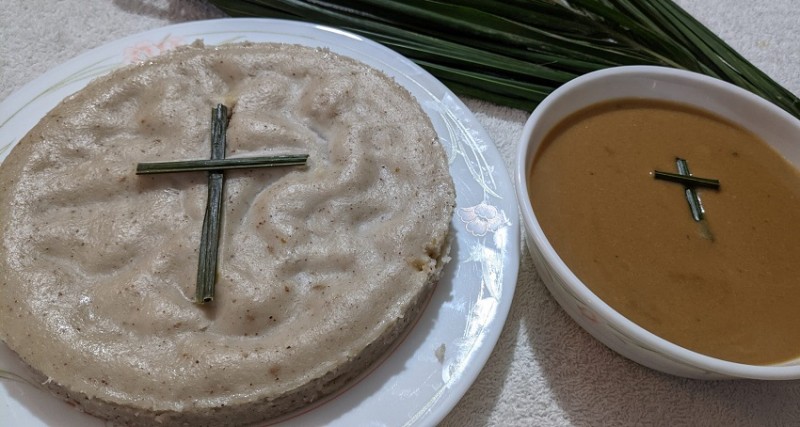
Maundy Thursday, Good Friday and Easter: Discovering the Tradition of Pesaha Appam: The origins of Pesaha Appam trace back some 4000 years to the time when the Israelites endured slavery in Egypt. As they prepared to depart for their promised land, they encountered the infamous 10 plagues, including frogs, the Nile turning red, locusts, and the ominous tenth plague - the loss of the firstborn in every family.
How to Make Pesaha Appam
For the Unfermented Appam:
1 Cup Raw Rice
1/4 Cup Urad Dal/Split Gram Dal
1 Cup Grated Coconut
2 Shallots
1 Pod of Garlic
1 tsp Cumin Seeds
1 tsp Salt
For the Coconut Milk Dip:
1 Cup Thick Coconut Milk
2 Cups Thin Coconut Milk
200gm Melted Jaggery
3 Cardamom Pods
Cooking Method:
On Maundy Thursday:
Soak the rice and dal for four hours. Keep the dal to rice ratio at 1:4. Grind the coconut, shallots, garlic, and cumin seeds. Grind the rice and dal separately, then mix with the coconut mixture. Add salt, but do not allow the batter to ferment. While preparing the coconut milk mix, let the batter rest.
For Cooking:
Boil water in an idli maker and steam the appam for 20 minutes. Apply oil to a steel plate and pour the batter. Use a palm leaf to make a cross on one appam if preparing multiple for sharing. Appam is traditionally sent to houses in mourning.
If an idli maker is unavailable, steam the batter in a pressure cooker or wok with a ring at the bottom and water underneath for 20 minutes on low flame.
The tradition of Pesaha Appam holds deep cultural significance, linking generations through its preparation and sharing during times of remembrance and reflection.
Palm Sunday to Easter: What is the significance of Holy Week?